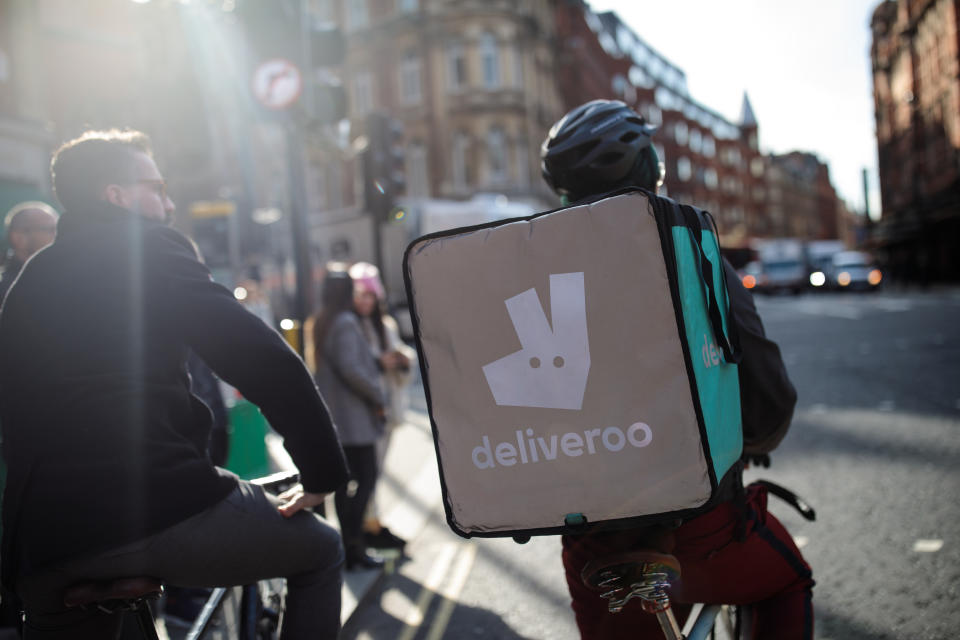$2bn payments startup Checkout.com to triple size of London base

Checkout.com, the London-based payments startup worth $2bn (£1.5bn), is tripling the size of its headquarters and will more double its headcount in the city by the end of 2020.
The startup, which processes payments for behemoths like Adidas, Virgin Active, Deliveroo, and EasyGroup, said on Friday that it expected to employ 600 people in London within 12 months, up from its current total of 300 and nearly three times as many as it employed in 2018.
The firm will in April move from its current base in central London to a much larger office in Old Street, near the “Silicon Roundabout” cluster of tech companies.
The move, the startup said, demonstrated its commitment to London’s technology scene. It also comes on the back of a huge funding round: The startup in May announced that it had raised $230m from a series of high-profile venture capital firms, the first time it had sought investment from outside backers.
Unlike most fintech firms, Checkout.com is profitable, and has experienced blockbuster revenue growth every year since it was founded by CEO Guillaume Pousaz in 2012 — two factors that allowed it to command its huge $2bn valuation.
READ MORE: These are the 10 fastest-growing jobs in Britain
Checkout.com’s European business made a profit of $2.4m in 2018 on sales of nearly $75m — a near 60% increase on the firm’s 2017 revenue in the region.
While the company does not disclose figures for its business outside Europe, revenue growth elsewhere is “very much in line” with that seen here, chief financial officer Thomas Hovaguimian told Yahoo Finance UK in an interview.
Hovaguimian said Checkout.com experienced similar levels of profitability elsewhere, too.
“We managed to grow and scale for seven or eight years at the pace we were whilst being disciplined and profitable,” he said, noting that many startups rack up huge losses in order to grow fast.
Checkout.com has had revenue growth north of 50% every year since it was founded.
In terms of expansion, Hovaguimian said that the Asia-Pacific region, where it has opened offices in Hong Kong, Singapore, and Australia was “firmly” on its list of priorities as it entered a “hyper-growth” phase.
Checkout.com is often mentioned in the same breath as Stripe, the $35bn San Francisco-based payments firm that was founded by two Irish brothers.
While Stripe markets itself as the solution for web developers and startups, Checkout.com has instead built an offering for much larger customers with huge trading volumes.
But Checkout.com has closer competitors, such as Adyen (ADYEN.AS), an Amsterdam-based firm valued at $22bn.
Both firms proclaim to offer one-stop-shop payments systems that allow major merchants to accept debit and credit card payments using the same set-up in any country. These solutions thus cut out complexity, and allow companies like Adidas to trim down the number of staff they employ to manage their payment networks.
‘Committed to London’
Hovaguimian said that, even in the face of Brexit, Checkout.com remained “steadfastly committed to London”.
He pointed to the benefits of being regulated by the Financial Conduct Authority, which he called “one of the most forward-thinking regulators in the world”, and the quality of engineering talent in the city, which he said is “unparalleled”.
“Generally, London has been good to us. It’s been our home since the early years. And we really love it”, Hovaguimian said.
Brexit nevertheless prompted Checkout.com to take a “belt and fasteners” approach to ensure it could continue to offer its services even if the UK crashed out of the European Union.
“Even now, if there was a no-deal scenario or a very bad deal in December 2020, then it doesn’t affect our capability or ability to serve our merchants regionally in Europe or globally.”
It sought licenses in France and doubled down on engineering hubs in Paris, Berlin, and Porto.
But its new office in East London will be a kind of jewel in the crown. Checkout.com will occupy 63,800 sq ft site of space in Wenlock Works, a Victorian warehouse newly refurbished by Schroder UK Real Estate Fund.
READ MORE: SoftBank-backed chip maker ARM spends £655m on R&D
‘Moment of reckoning’
In the wake of WeWork’s failed IPO and its well-documented financial woes, Hovaguimian said he thought there could be “a bit of a reckoning” coming for some businesses.
“The whole thing of growing a user base and promising to turn profitable at some point is maybe a model that is going to prove more challenging for many companies trying to attract public and private capital,” he said.
Doing things differently has served Checkout.com well, he said.
“We have built a business that is very resilient, has high growth ambitions, but is run in a very disciplined way.”

 Yahoo Finance
Yahoo Finance 
